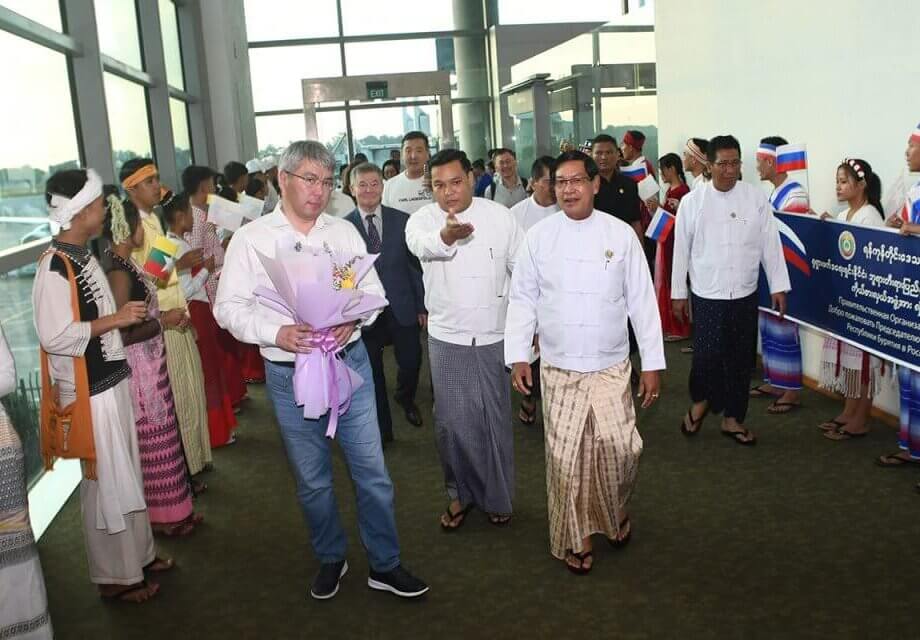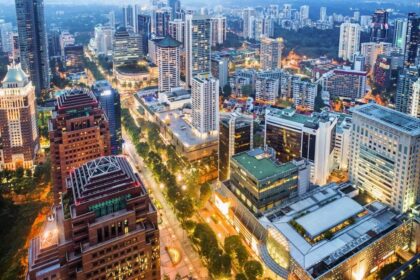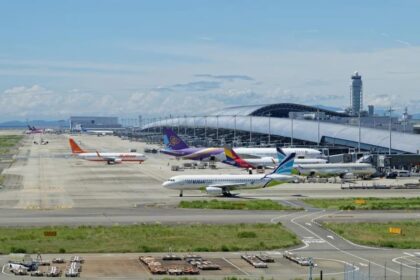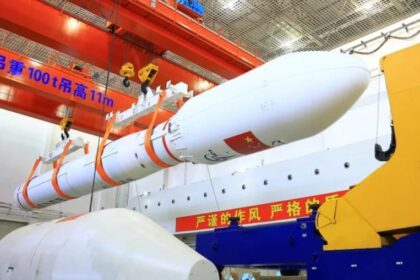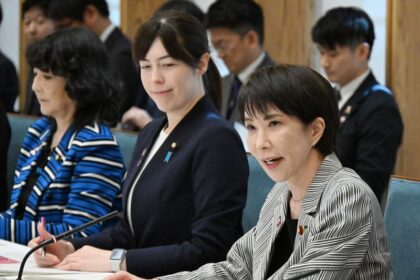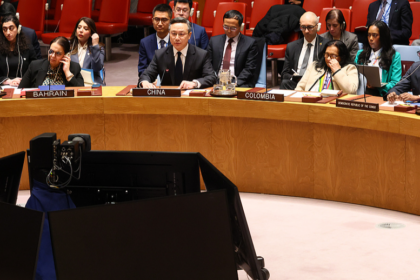Myanmar and Buryatia: A New Chapter in Bilateral Cooperation
Myanmar and the Republic of Buryatia, a federal subject of Russia, are entering a new era of cooperation, with recent high-level visits highlighting opportunities in railway and aircraft manufacturing, as well as broader sectors such as education, healthcare, and tourism. The momentum for this partnership was underscored by the official visit of Myanmar’s State Administration Council Chairman and Prime Minister, Senior General Min Aung Hlaing, to Buryatia, where he engaged in extensive discussions with Buryatia’s Head, Mr. Aleksey Sambuyevich Tsydenov, and toured key industrial and cultural sites.
- Myanmar and Buryatia: A New Chapter in Bilateral Cooperation
- Strategic Visits: Laying the Groundwork for Industrial Collaboration
- Beyond Industry: Expanding Cooperation into Education, Healthcare, and Culture
- Tourism and Environmental Conservation: Showcasing Natural and Cultural Heritage
- Official Statements: Optimism and Commitment to Long-Term Partnership
- Economic and Technological Implications
- Challenges and the Road Ahead
- In Summary
Strategic Visits: Laying the Groundwork for Industrial Collaboration
The visit by Senior General Min Aung Hlaing to Buryatia was marked by tours of the Ulan-Ude Locomotive and Carriage Repair Plant (LVRZ) and an aircraft manufacturing facility. These visits were not merely ceremonial; they signaled Myanmar’s intent to deepen industrial ties with Buryatia, leveraging Russian expertise in railway and aviation technology.
The LVRZ plant, established in 1934 and operating under the Zheldorrem-mash Company, is a major player in the repair and modernization of railway equipment. Its operations span locomotive repair, machinery production, and spare parts manufacturing. The plant is also engaged in upgrading repair technologies, improving locomotive performance, and extending the service life of rolling stock. During the visit, plant officials provided detailed briefings on their processes, employment generation, and international cooperation, highlighting the potential for Myanmar to benefit from these advanced capabilities.
Similarly, the aircraft manufacturing sector in Buryatia has a track record of exporting helicopters to Myanmar, with ongoing discussions about expanding cooperation in aviation and logistics. The Ulan-Ude plant’s helicopters are already in use in Myanmar, and both sides expressed interest in further collaboration, particularly in transportation and helicopter services.
Beyond Industry: Expanding Cooperation into Education, Healthcare, and Culture
While industrial cooperation forms the backbone of the Myanmar-Buryatia partnership, both sides are keen to expand their collaboration into other vital sectors. Education is a key area of focus, with plans to introduce Russian language teachers in Myanmar and establish a Myanmar language department at a university in Buryatia. These initiatives aim to foster deeper cultural understanding and facilitate future exchanges between the two regions.
Healthcare is another promising field. Buryatia’s Rapid Bio pharmaceutical company is working on registering and exporting medical products and technologies to Myanmar. This move could enhance Myanmar’s access to advanced medical solutions and strengthen its healthcare infrastructure.
Both leaders also highlighted the shared Buddhist heritage of Myanmar and Buryatia as a foundation for cultural and religious cooperation. With significant Buddhist populations in both regions, there is potential for joint initiatives in religious education, cultural preservation, and interfaith dialogue.
Tourism and Environmental Conservation: Showcasing Natural and Cultural Heritage
The visit to Baikal Lake, the world’s deepest and one of the oldest freshwater lakes, was a symbolic gesture underscoring the importance of environmental conservation and tourism. Baikal Lake, a UNESCO World Heritage Site, is renowned for its biodiversity, with around 1,000 rare plant species and 2,500 animal species. The Myanmar delegation’s tour of the lake, accompanied by Buryatia’s leadership, included discussions on conservation measures and the potential for eco-tourism development.
Tourism is seen as a mutually beneficial sector, with both Myanmar and Buryatia possessing rich cultural and natural attractions. The leaders discussed plans to promote tourism exchanges, allowing citizens from both regions to experience each other’s heritage and landscapes. Such exchanges are expected to foster goodwill and create new economic opportunities.
Official Statements: Optimism and Commitment to Long-Term Partnership
During media interviews, both Senior General Min Aung Hlaing and Mr. Tsydenov expressed optimism about the future of Myanmar-Buryatia relations. The Senior General emphasized the sense of familiarity and peace he felt in Buryatia, noting the region’s beauty and the warmth of its people. He highlighted the potential for cooperation across numerous sectors, including industry, education, healthcare, agriculture, and culture.
Mr. Tsydenov, in turn, underscored the significance of the Prime Minister’s third visit to Buryatia as a reflection of the value placed on the relationship. He pointed to ongoing projects, such as the registration of medical technologies and the export of helicopters, as evidence of tangible progress. He also reiterated plans to enhance educational and tourism exchanges, expressing hope for the implementation of many cooperative projects in the near future.
Quotes from the Leaders
Senior General Min Aung Hlaing, reflecting on the visit and future cooperation, stated:
“Today, I visited a railway factory, and earlier I also visited an aircraft manufacturing plant. These are promising areas for cooperation between our two sides. Furthermore, in Buryatia, there are many people who practise Buddhism, and since Myanmar is also a Buddhist country, there is potential for collaboration in the area of Buddhism as well. There are also opportunities related to healthcare. Moreover, there has been an offer from the Prime Minister regarding learning education. So, we have a plan to cooperate in education. We may also move forward with discussions and activities related to agriculture. There are many areas to work on—what I want to emphasize is that there are numerous potential sectors for collaboration.”
Mr. Aleksey Sambuyevich Tsydenov, Head of the Republic of Buryatia, shared his perspective:
“Knowing that this is the Prime Minister’s third visit from Myanmar, I feel deeply honoured and pleased. His three times of visit show a clear reflection of how much he values and appreciates our region. I also hope that we will be able to implement many cooperative projects between our republic and Myanmar. In recent years, for example, our Rapid Bio pharmaceutical company has been working on registering and exporting medical products and technologies to Myanmar. Moreover, the helicopters produced at Ulan-Ude plant have been used in Myanmar for many years. They are still in use today, and we are planning further cooperation in the future, particularly in areas related to transportation and helicopter services.”
Economic and Technological Implications
The deepening cooperation between Myanmar and Buryatia has significant economic and technological implications. For Myanmar, access to Russian railway and aviation technology could modernize its transportation infrastructure, improve connectivity, and support economic growth. The transfer of knowledge and expertise from Buryatia’s established industrial base could also help Myanmar develop its own manufacturing capabilities, create jobs, and enhance technical skills among its workforce.
For Buryatia, expanding exports of locomotives, spare parts, helicopters, and medical technologies to Myanmar opens new markets and strengthens its position as a regional industrial hub. The partnership also aligns with Russia’s broader strategy of deepening ties with Southeast Asian countries, diversifying its international partnerships, and promoting regional development in Siberia and the Russian Far East.
Challenges and the Road Ahead
While the prospects for cooperation are promising, both sides will need to navigate challenges such as regulatory differences, logistical complexities, and the need for sustained political will. Successful implementation of joint projects will require careful planning, transparent communication, and ongoing engagement at both governmental and business levels.
Education and language barriers may also pose challenges, but the planned exchange programs and language departments are proactive steps to address these issues. Similarly, ensuring that technology transfers and industrial collaborations are mutually beneficial will be key to building trust and achieving long-term success.
In Summary
- Myanmar and Russia’s Republic of Buryatia are expanding cooperation in railway and aircraft manufacturing, with high-level visits and official discussions laying the groundwork for joint projects.
- The partnership extends beyond industry, encompassing education, healthcare, tourism, and cultural exchanges, with initiatives such as language programs and medical technology exports.
- Visits to key sites like the Ulan-Ude Locomotive and Carriage Repair Plant and Baikal Lake highlighted opportunities in industrial modernization and environmental conservation.
- Both sides expressed optimism about the future, emphasizing shared Buddhist heritage, mutual respect, and a commitment to long-term collaboration.
- The cooperation has significant economic and technological implications, offering benefits for infrastructure development, job creation, and regional integration.
- Challenges remain, but proactive measures in education, communication, and project planning are being pursued to ensure the partnership’s success.


